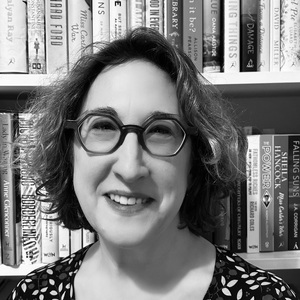You are viewing your 1 free article this month. Login to read more articles.
Freelancers assemble
Publishing’s freelancers are finally getting the attention they deserve—don’t miss out.
When my (brilliant) freelance colleague, Julia Kellaway, sent me a link to The Bookseller’s FutureBook Awards, which "highlight and amplify the year’s outstanding publishing people and projects", telling me to "look, look, look!", I had to look, look, look and look again. For there, after so many years of it not being there, was a new category: Freelancer of the Year.
It is hard to describe how happy this has made me. After years of campaigning to get recognition for the countless freelancers who fuel publishing across all areas of the industry, this is finally a boost and a major step upward in saluting what we do. A big shout-out to The Bookseller and Whitefox for making this happen.
I have been a freelance editor—a structural and developmental editor of fiction and non-fiction—for 25 years. I am also a ghostwriter. Ever since I left my career in academic publishing and discovered a novel that went on to win awards and launch the novelist’s career, I have worked for many leading agents and publishers. I have been a champion for debut writing, nurturing and linking several now-bestselling writers with agents. I have been a judge on The Lucy Cavendish Fiction Prize and am this year a Debut Fiction Judge for The Nero Book Awards, a tremendous boost for my perpetually fragile freelance state.
I recently had to temporarily move all the books out of my office and as I carried them into another room, and I took the time to take stock and reflect. I have edited, critiqued or book-doctored more than 400 published novels; I have developmentally edited close to 125 published works of non-fiction and ghosted - written – 12 memoirs. Some of the books I have edited or ghosted have been nominated for, or won, the Booker Prize, The Women’s Prize, The Whitbread/Costas, The American Books Awards and The British Book Awards. One of my ghosted books was turned into a West End musical. Many books I have worked on have forged a writer’s success and very many have delighted readers.
I get why putting yourself forward for this award may feel counter-intuitive. But it would be an affirmation of the need for industry respect for the crucial role of freelancers if you did.
I lay this out, not to puff myself up—I am strictly back room—but to show you how much work I have done as a freelancer, and how many books I have had the great fortunate to help bring to the table. It’s not just the actual work either. I strive to maintain good relationships with agents, publishers and writers, the stakes high for all when a manuscript is not working and needs fixing. The symbiosis of our need for each other can be enjoyable, challenging and productive.
And I know that there are many of you out there like me. Structural editors, copy editors, designers, translators, publicists and so on. All of us working, largely in isolation from each other, all of us committed and passionate about our projects, all of us used to going unnoticed when it comes to any industry awards. We can be so unnoticed, in fact, that even when books I have edited have been nominated for major awards and I have asked to come to the prize giving, I have been told there is "no room".
Now with this new FutureBook Award, we have a chance to get the recognition we so obviously deserve. Paradoxically, while as freelancers we have to continually hustle for work and outwardly show enormous self-confidence in ourselves and our work, we are not always good at putting ourselves out there for praise. This, I think, is due to i) there not, until now, being any large-scale industry awards for freelancers and ii) the kind of arms-length relationship we have with our work once we hand it over. I can feel hugely invested and key in the editing of a novel or the writing of a memoir but once my work is done, and the script is with the agent or publisher, my involvement is largely over. I totally get why this is so—we each have our role to play in getting a book to market. But being freelance is fragmentary, solitary—and when success happens, though many generously thank us at launches and authors mostly always give us a shout out in the acknowledgements, we aren’t an embedded part of "the team".
And so, if there isn’t any one person or industry professional to nominate you, I get why putting yourself forward for this award may feel counter-intuitive. But it would be an affirmation of the need for industry respect for the crucial role of freelancers if you did.
This is too significant an opportunity for us all to stay hidden away in the shadows. Especially when two of the finalists for the award will be invited to speak on a panel at the FutureBook conference itself, on 25th November in London, to discuss how freelancers and in-house publishing people can work together better, alongside two representatives from the big houses.
So enter now (or nominate a freelancer you work with) before the deadline on Thursday—and help us, the heartbeat of this industry, get the recognition we all so richly deserve.















